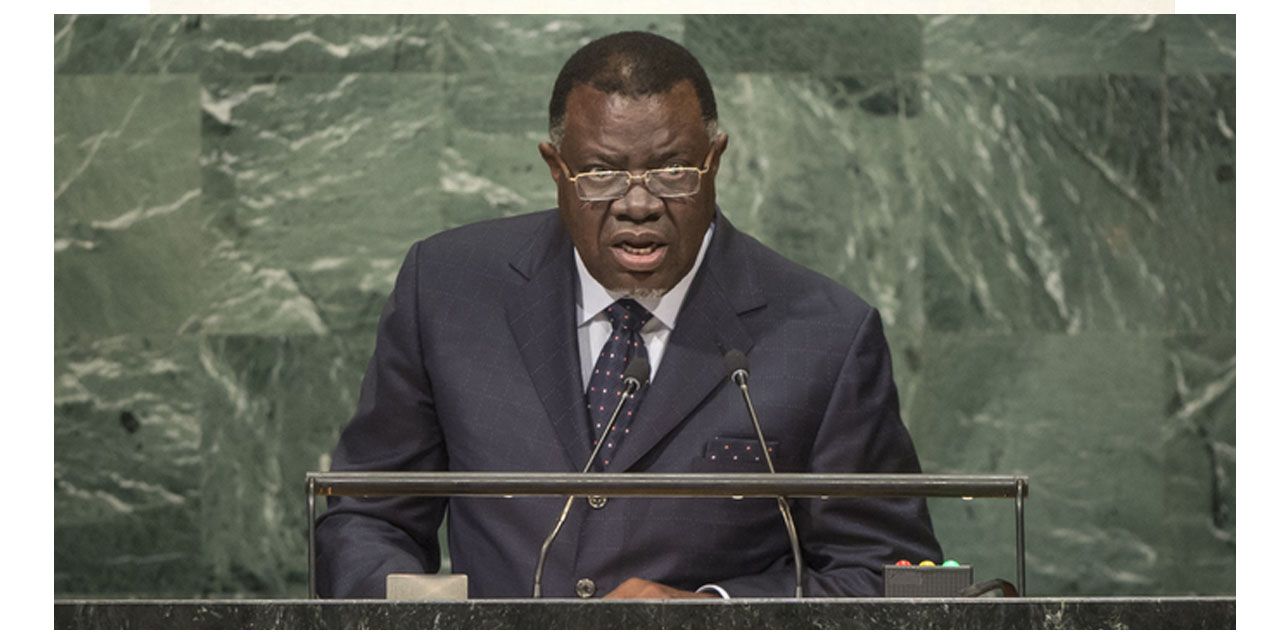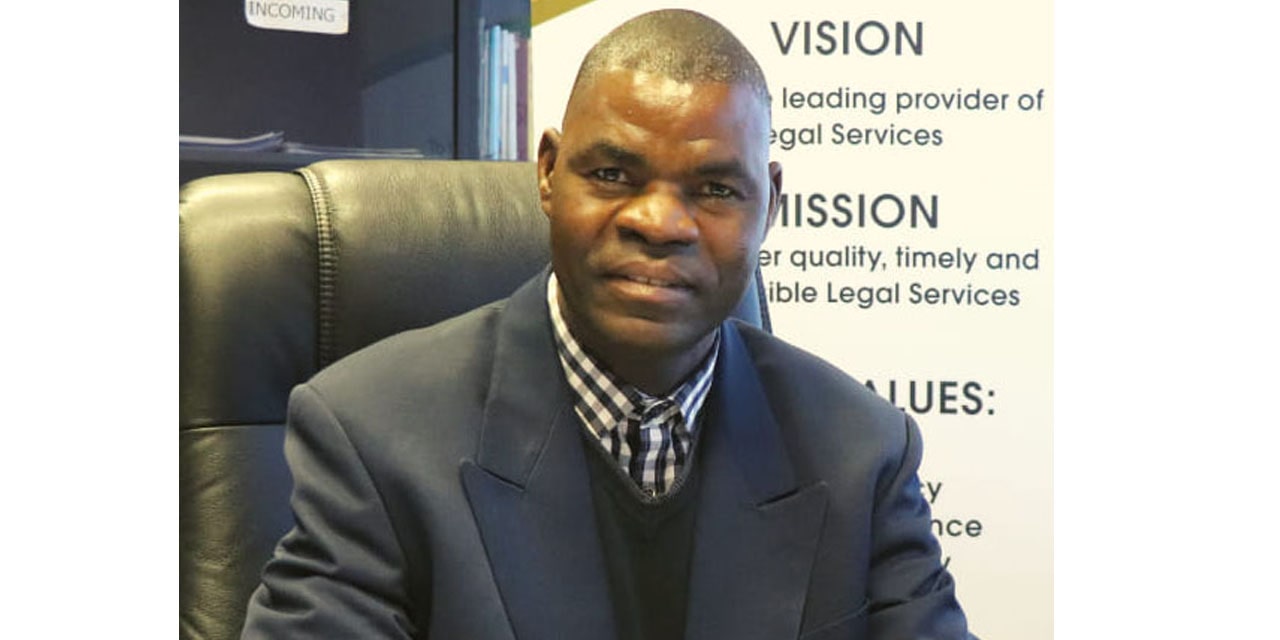President Hage Geingob has raised awareness on the challenges Namibia face as a developing country during the opening of the 77th United Nations General Assembly (UNGA 77) in New York yesterday.
He explained that one of the vulnerabilities facing Namibia is the country’s classification as an Upper-Middle Income Country, which he said makes mobilising resources to finance development goals difficult.
“Global debt is at an unprecedented level and interest rates are rising. This reality limits our fiscal space. As we talk about our collective aspirations, we should remain acutely aware of the
vulnerabilities facing developing countries. Namibia’s classification as an Upper Middle-7 Income Country, presents challenges with regards to mobilizing resources to finance our development goals. As I have been saying, taking our GDP and dividing it by our small population, thus deriving a high per capita income is without doubt a flawed formula that requires urgent consideration. The formula does not take into account the vast income disparities between the wealthy whites and the poor blacks, which is a consequence of 100 years of colonialism and Apartheid occupation,” he stated.
He further added that he is delighted to learn that a number of developing and developed countries agree with this unjust classification, which denies countries like Namibia access to soft loans and grants, which are required to combat inequality and lift many people out of poverty.
Geingob further explained that developing countries like Namibia remain vulnerable to the asymmetrical impacts of climate change and that the country plans to decarbonize.
He thus emphasised that there is a need to act decisively to reduce carbon emissions. However, he added that a just energy transition is also about fair opportunities for developing nations to sustainably access the natural endowments at their disposal.
Namibia, Geingob said remains optimistic in the government’s efforts to address the three challenges of inequality, unemployment and poverty through the Harambee Prosperity Plan II, which is accelerating the implementation of the National Development Plans.
The UNGA is the main policy-making organ of the United Nations.
The UN General Assembly is an opportunity for the world to come together to address the most pressing global challenges facing the nations of the world today.
UNGA 77 opened yesterday with the first day of the high-level General Debate set to start next week Tuesday, 20 September.
The United Nations reports that air pollution is the leading cause of many common killers and health
issues related to air pollutants are now well documented and the statistics are concerning as 7% of lung cancer deaths, 18% COPD (pulmonary disease) deaths, 20% of stroke deaths , 34% of heart disease deaths.




